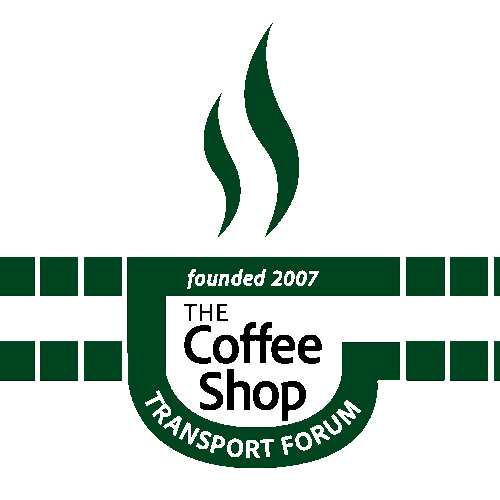| Re: 30 years of the Transport Act - 5th November 1993 Posted by Electric train at 07:23, 7th November 2023 |     |
From a much longer article in The Oxford Student on HS2
The full situation is a complex one; the above (take the full article) written by an author who clearly has no love for our current government. He fails to mention the massive growth in passenger numbers on rail, for example. He is scathing on HS2 and makes points well.
The origin of the decimation of Britain’s railways is the failed experiment of privatisation. In 1994, an embattled Conservative Government took it upon themselves to crown Thatcher’s wishes by selling British Rail into private hands. Unlike British Airways, however, the sale of British Rail could never seek to generate proper competition – it would never work, not even in theory.
Railways can only facilitate a single train at any one time. Railways consist of popular profitable routes and unprofitable routes serving smaller communities. Railways require large upfront investment to make progress. Air travel never had these issues. British Railways should’ve never been put into private hands.
If I were a businessman in 1994 and wanted to take advantage of the new rail liberalisation policy, my rail start-up could surely try and bring in a new competitive route from Leeds to London? Sadly, it couldn’t. The line would already be in use for another service. Even if I could secure a spot on the line, I’d have to win a contract from the government. The companies that win government contracts are granted exclusive rights to some of the most profitable routes for an extended duration of time.
Private rail companies are therefore (and by design) ...
Railways can only facilitate a single train at any one time. Railways consist of popular profitable routes and unprofitable routes serving smaller communities. Railways require large upfront investment to make progress. Air travel never had these issues. British Railways should’ve never been put into private hands.
If I were a businessman in 1994 and wanted to take advantage of the new rail liberalisation policy, my rail start-up could surely try and bring in a new competitive route from Leeds to London? Sadly, it couldn’t. The line would already be in use for another service. Even if I could secure a spot on the line, I’d have to win a contract from the government. The companies that win government contracts are granted exclusive rights to some of the most profitable routes for an extended duration of time.
Private rail companies are therefore (and by design) ...
The full situation is a complex one; the above (take the full article) written by an author who clearly has no love for our current government. He fails to mention the massive growth in passenger numbers on rail, for example. He is scathing on HS2 and makes points well.
The "private" ownership of the infrastructure ie Railtrack with the contracted out maintenance failed fairly early on with the formation of Network rail and bring in house key day to day maintenance. The franchise model for TOC's had to be reshaped into bigger groupings eg the the merging of FGW and Thames Trains (there are other examples), today most of the TOCs are either run under contract, concession or operator of last resort.
Could BR have had the same growth as the privatised railway, yes if it had been allowed to, BR was a very innovative organisation, it could respond to market forces; BR had made many changes in operating practices. But it was hampered by the DfT and the Treasury.
| Re: 30 years of the Transport Act - 5th November 1993 Posted by grahame at 04:45, 7th November 2023 |     |
From a much longer article in The Oxford Student on HS2
The origin of the decimation of Britain’s railways is the failed experiment of privatisation. In 1994, an embattled Conservative Government took it upon themselves to crown Thatcher’s wishes by selling British Rail into private hands. Unlike British Airways, however, the sale of British Rail could never seek to generate proper competition – it would never work, not even in theory.
Railways can only facilitate a single train at any one time. Railways consist of popular profitable routes and unprofitable routes serving smaller communities. Railways require large upfront investment to make progress. Air travel never had these issues. British Railways should’ve never been put into private hands.
If I were a businessman in 1994 and wanted to take advantage of the new rail liberalisation policy, my rail start-up could surely try and bring in a new competitive route from Leeds to London? Sadly, it couldn’t. The line would already be in use for another service. Even if I could secure a spot on the line, I’d have to win a contract from the government. The companies that win government contracts are granted exclusive rights to some of the most profitable routes for an extended duration of time.
Private rail companies are therefore (and by design) ...
Railways can only facilitate a single train at any one time. Railways consist of popular profitable routes and unprofitable routes serving smaller communities. Railways require large upfront investment to make progress. Air travel never had these issues. British Railways should’ve never been put into private hands.
If I were a businessman in 1994 and wanted to take advantage of the new rail liberalisation policy, my rail start-up could surely try and bring in a new competitive route from Leeds to London? Sadly, it couldn’t. The line would already be in use for another service. Even if I could secure a spot on the line, I’d have to win a contract from the government. The companies that win government contracts are granted exclusive rights to some of the most profitable routes for an extended duration of time.
Private rail companies are therefore (and by design) ...
The full situation is a complex one; the above (take the full article) written by an author who clearly has no love for our current government. He fails to mention the massive growth in passenger numbers on rail, for example. He is scathing on HS2 and makes points well.
| Re: 30 years of the Transport Act - 5th November 1993 Posted by Electric train at 16:56, 6th November 2023 |     |
The privatisation process of BR was painful for me, well it seemed like it at the time ................... however
The redundancy substantially paid off my mortgage, I was reemployed back in the industry doing more or less the same job but for twice as much money
I thank John Major for the improvements he made in my life

Soon to retire from the railway on my railway pension ..............
Did privatisation work

| Re: 30 years of the Transport Act - 5th November 1993 Posted by Witham Bobby at 12:26, 6th November 2023 |     |
I don't have much time for the RMT, and I have no rose-tinted spectacles for the way BR was run from above, with all the political interference,
but it's hard to disagree with
passengers have got an increasingly expensive fractured railway with 55 million different fares, plagued by service cuts and cancellations and run by people fixated with cutting staff costs
| Re: 30 years of the Transport Act - 5th November 1993 Posted by GBM at 08:16, 5th November 2023 |     |
Forum members may feel that this is just one view on a complex situation and are welcome to share other views ... the above is what came up on my feed this morning ... More around the story on Wikipedia
Hard hats on - incoming...........
| 30 years of the Transport Act - 5th November 1993 Posted by grahame at 06:35, 5th November 2023 |     |
From the RMT Press Office
Thirtieth anniversary of the 1993 Railways Act.
RAIL UNION RMT marked the 30th anniversary today (Sunday November 5, 2023) of the 1993 Railways Act that privatised Britain’s railway with a new report which revealed that the three-decade debacle had seen at least £31 billion leak out of the system while passengers were paying eight per cent more in real terms to travel on a deteriorating system.
As a result, tens of billions of pounds have been siphoned out of the industry ever since by the private sector and into the pockets of the shareholders of the host of companies that feed off what should be a vital public service.
The union called for an end to this disastrous experiment and for the creation of a single, integrated publicly owned railway company which would save around £1.5 billion every year and cut fares by 18 per cent, helping to encourage more people back onto Britain’s railways.
RMT general secretary Mick Lynch said that the report showed that while Britain’s 30-year experiment with rail privatisation had been great for the City boardrooms, it had been an expensive debacle for passengers.
“Under privatisation the rail system has become a cash cow for the cloud of parasitic private interests that swarm around it, but passengers have got an increasingly expensive fractured railway with 55 million different fares, plagued by service cuts and cancellations and run by people fixated with cutting staff costs.
“Indeed, the governments wildly unpopular and unworkable ticket office closures plan was driven by a system that sought to protect profits at the expense of passengers.
“The U-turn on ticket office closures and the 30-anniversary of the debacle of railway privatisation should be a turning point that leads to the establishment of a nationally integrated publicly owned rail network run as a public service, a move that would be massively popular with passengers and communities,” he said.
RAIL UNION RMT marked the 30th anniversary today (Sunday November 5, 2023) of the 1993 Railways Act that privatised Britain’s railway with a new report which revealed that the three-decade debacle had seen at least £31 billion leak out of the system while passengers were paying eight per cent more in real terms to travel on a deteriorating system.
As a result, tens of billions of pounds have been siphoned out of the industry ever since by the private sector and into the pockets of the shareholders of the host of companies that feed off what should be a vital public service.
The union called for an end to this disastrous experiment and for the creation of a single, integrated publicly owned railway company which would save around £1.5 billion every year and cut fares by 18 per cent, helping to encourage more people back onto Britain’s railways.
RMT general secretary Mick Lynch said that the report showed that while Britain’s 30-year experiment with rail privatisation had been great for the City boardrooms, it had been an expensive debacle for passengers.
“Under privatisation the rail system has become a cash cow for the cloud of parasitic private interests that swarm around it, but passengers have got an increasingly expensive fractured railway with 55 million different fares, plagued by service cuts and cancellations and run by people fixated with cutting staff costs.
“Indeed, the governments wildly unpopular and unworkable ticket office closures plan was driven by a system that sought to protect profits at the expense of passengers.
“The U-turn on ticket office closures and the 30-anniversary of the debacle of railway privatisation should be a turning point that leads to the establishment of a nationally integrated publicly owned rail network run as a public service, a move that would be massively popular with passengers and communities,” he said.
Forum members may feel that this is just one view on a complex situation and are welcome to share other views ... the above is what came up on my feed this morning ... More around the story on Wikipedia










